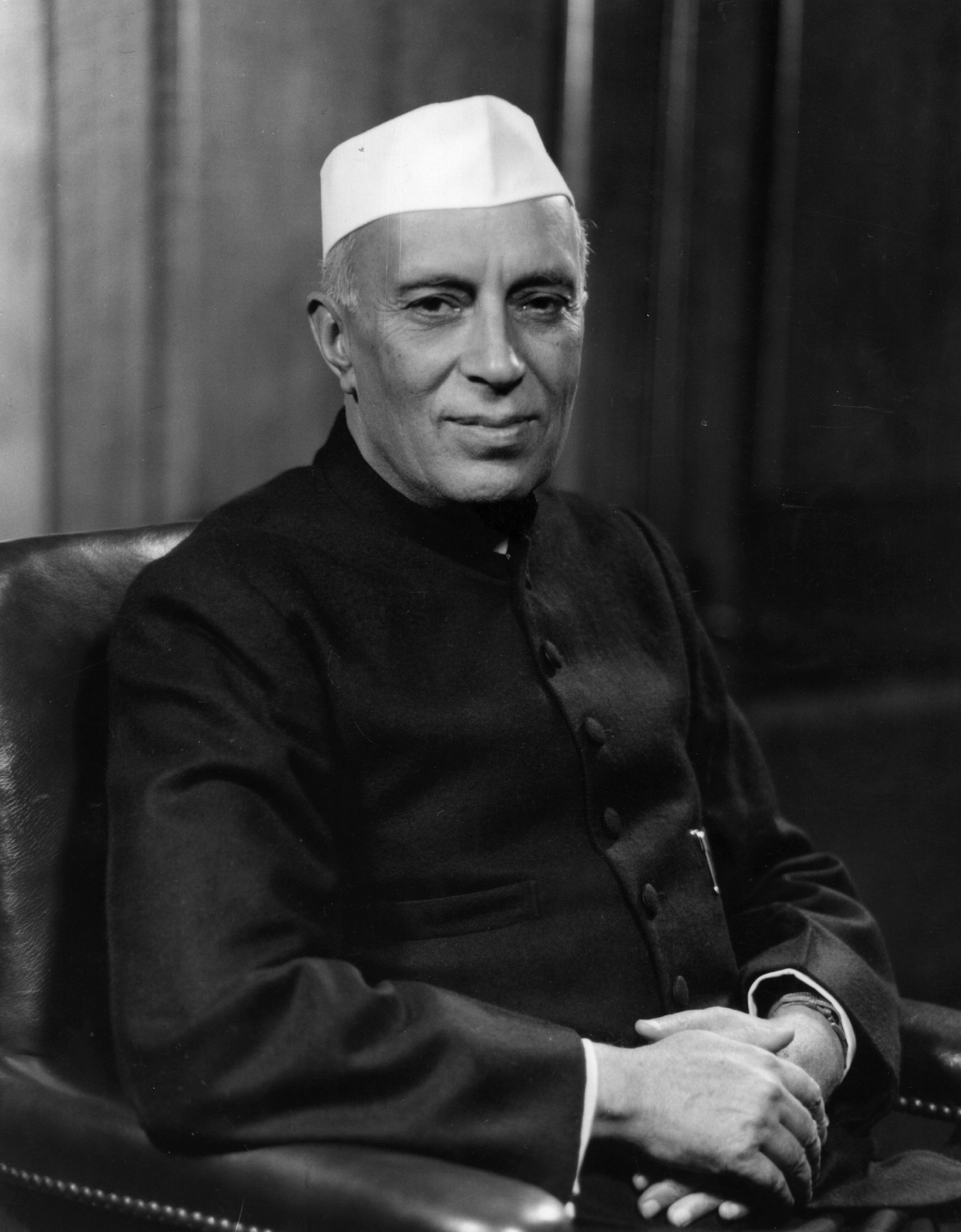Nehru, << NAY roo or NEH roo >>, is the family name of a father and his son, daughter, and granddaughter who became distinguished in Indian public affairs. The father and the son prefixed their names with their caste name, pandit. Pandit also means scholar. The daughter, born Swarup Kumari Nehru, used Pandit as her last name (see Pandit, Vijaya Lakshmi). She was the first woman president of the United Nations General Assembly. The granddaughter, Indira Gandhi, became the first woman prime minister of India (see Gandhi, Indira). Her son Rajiv Gandhi also served as prime minister (see Gandhi, Rajiv).
Motilal Nehru.
Motilal << MOH tih lahl >> Nehru (1861-1931) came from a distinguished family in the province of Kashmir. He studied law at Muir College in Allahabad and built up a prosperous legal practice. He was at first a close friend of the English in India, a member of wealthy social groups, and a follower of Western ways. But in the 1920’s he was converted to the cause of Indian independence, and became a follower of Mohandas Gandhi (see Gandhi, Mohandas K.). Nehru gave up his law practice and began to live in a simple manner.
Nehru wrote the Nehru Report in 1928. It outlined a new constitution for India. In 1930, he became active in Gandhi’s civil disobedience movement. His energetic efforts on behalf of freedom and several terms in prison weakened Nehru’s strength, and he died the next year, on Feb. 6, 1931. Nehru was born in Agra on May 6, 1861.
Jawaharlal Nehru.
Jawaharlal << juh WAH hur lahl >> Nehru (1889-1964), the son of Motilal Nehru, was India’s first prime minister. He served as prime minister from 1947 until his death. He dominated Indian affairs. He worked to establish a democracy and to improve living standards. He favored a state-controlled economy.

Nehru gained international recognition for opposing alliances with the great powers and for promoting neutralism (nonalignment). He advocated nonaggression and ending atomic bomb tests. But he was criticized when Indian forces seized Goa and other Portuguese territories in India in 1961.
Loading the player...India becomes a republic
Nehru acted as a spokesman for nonaligned nations in Asia and Africa. He favored admitting Communist China to the United Nations until Chinese forces attacked the Indian border in 1962.
Nehru and his father were fond and proud of each other, but occasionally disagreed. At one time, the father favored only dominion status for India, while the son demanded complete independence.
Nehru was born in Allahabad on Nov. 14, 1889. He went to school in England and graduated from Harrow School and Cambridge University. He returned to India after his schooling and became active in politics. He supported Mohandas Gandhi’s civil disobedience movement in 1920. Nehru served as general secretary of the All India Congress Committee in 1929. That same year, he was elected president of the Indian National Congress. He held that post again in 1936, 1937, and 1946. The British often imprisoned him for his nationalistic activities during this period. He died, after a stroke, on May 27, 1964. Nehru was a master of English, and his writings are widely read.
